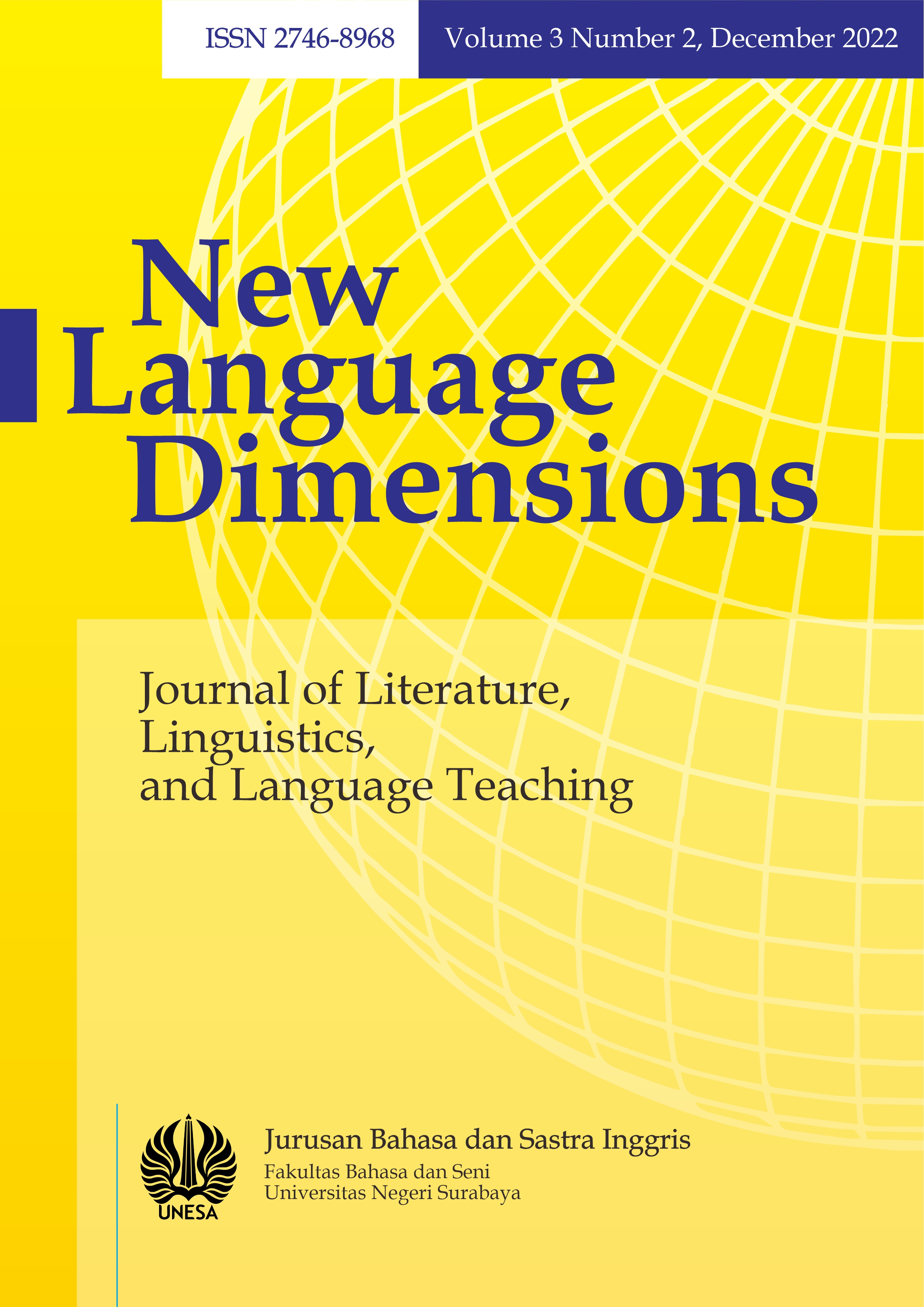Profiling Users’ State of Mind towards Online Teaching and Learning in Higher Education
DOI:
https://doi.org/10.26740/nld.v3n2.p91-101Abstract
This study delves into the users’ state of mind with regard to the use of online platforms for educational purposes, specifically in the context of higher education. The purpose of this study, which employs a survey method, is to investigate how students perceive online teaching and learning in higher education and contribute to the growing collaboration between higher education researchers studying 21st-century learning concepts and Indonesian universities, which are increasingly implementing online teaching and learning. This study analyses various significant problems, including the process of online teaching and learning at universities, the difficulties of its implementation, and the users’ perceptions and attitudes towards the implementation of online teaching and learning. Overall, it is found that both students and lecturers prefer offline, face-to-face interaction in class rather than the online system. It is possible to state that both the lecturers and the students who have been attached to the conventional method of instruction and learning process are not prepared for the shift from offline to online learning. Even though online learning has been implemented, there is still a lack of consensus on the best practices for an effective online classroom. In addition to this, the fact that the institution does impose any fixed regulation also plays an important role in this.
Keywords: State of Mind, Online Teaching and Learning, Higher Education
Downloads
References
Allen, I. E., & Seaman, J. (2010). Class Differences: Online Education in the United States, 2010.
Commission on Education for the Twenty-first Century. (1998). Education for the twenty-first century: issues and prospects.
Duncan, A. (2009). Statement from U.S. Secretary of Education Arne Duncan on results of NAEP Arts 2008 Assessment. U.S. Department of Education.
Halliday, M. A. K. (1978). Language as Social Semiotic: The Social Interpretation of Language and Meaning. Hodder Arnold.
Jaggars, S. S. (2012). Beyond Flexibility: Why Students Choose Online and Face-to-Face Courses in Community College.
Jerald, C. D. (2009). Defining A 21st Century Education.
Means, B., Toyama, Y., Murphy, R., Bakia, M., & Jones, K. (2010). Evaluation of Evidence-Based Practices in Online Learning A Meta-Analysis and Review of Online Learning Studies.
Muse, H. E. (2003). A persistence issue: Predicting the at-risk student in community college Web based classes . Nova Southeastern University.
Partnership for 21st Century Skills. (2009). A framework for 21st century learning.
Downloads
Published
Issue
Section
 Abstract views: 217
,
Abstract views: 217
, PDF Downloads: 168
PDF Downloads: 168











